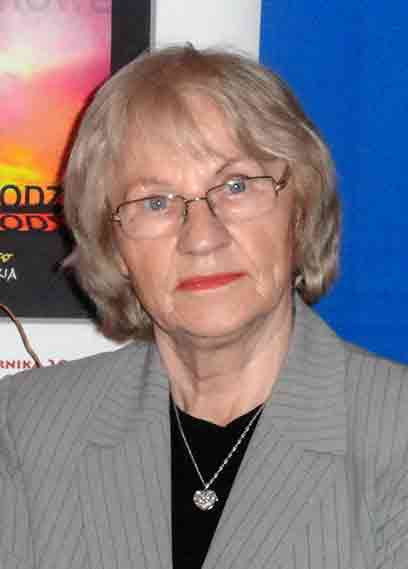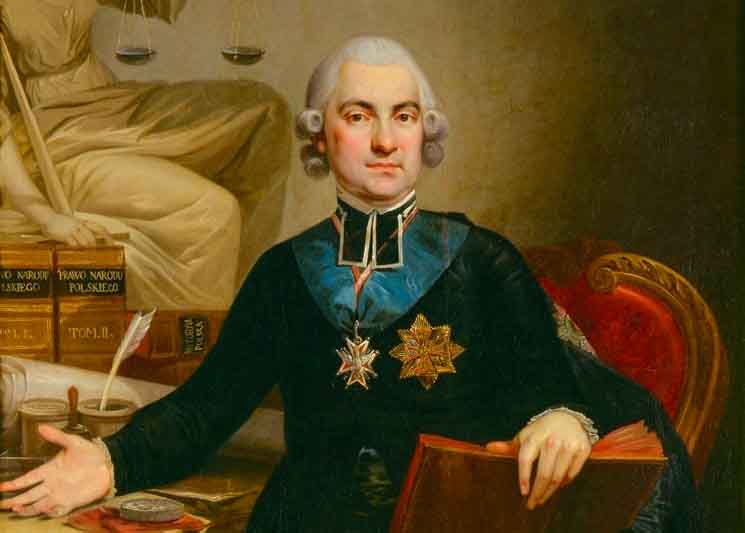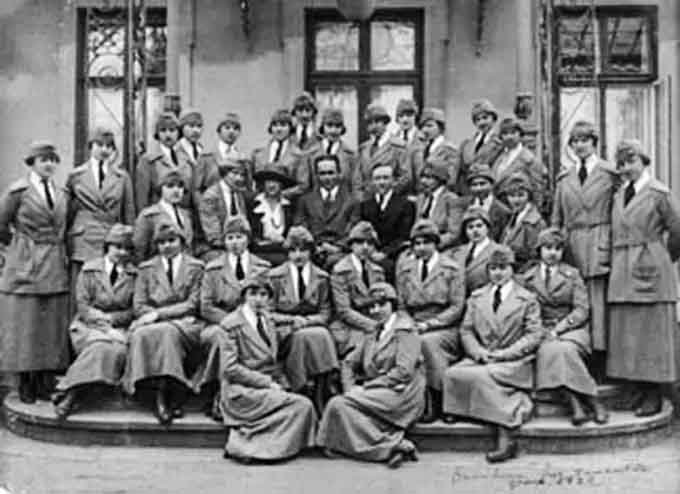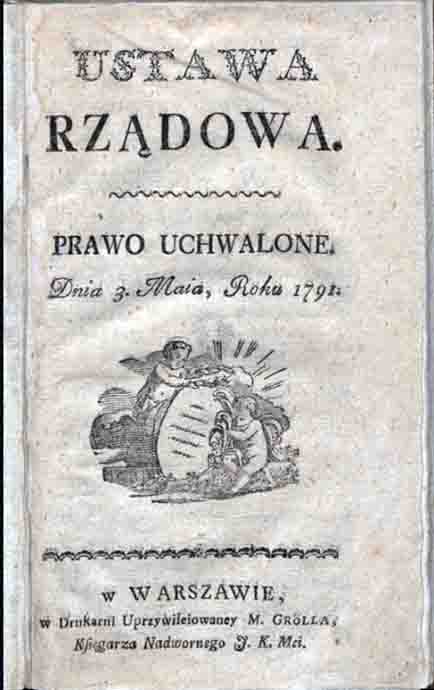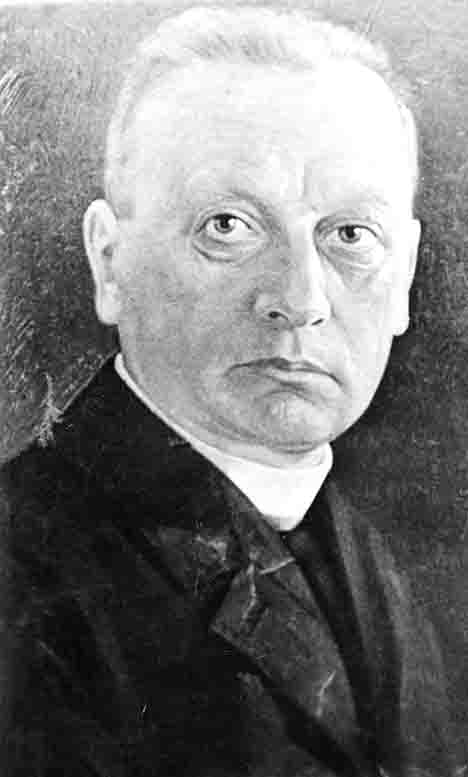On May 30, 2022, the Polish community in Wisconsin had the honor of hosting a delegation from the Polish Ministry of Education and Science chaired by Minister Przemysław Czarnek. The visit coincided with a very important anniversary in the history of Polish education — the 120th anniversary of the children's strike in Września. At the cemetery of St. Adalbert in Milwaukee is the grave of Tekla Tomaszewska-Dembińska — a participant in the strike. The Polish delegation laid a wreath in white-and-red on her grave. It is our patriotic and civic duty to remember these events.
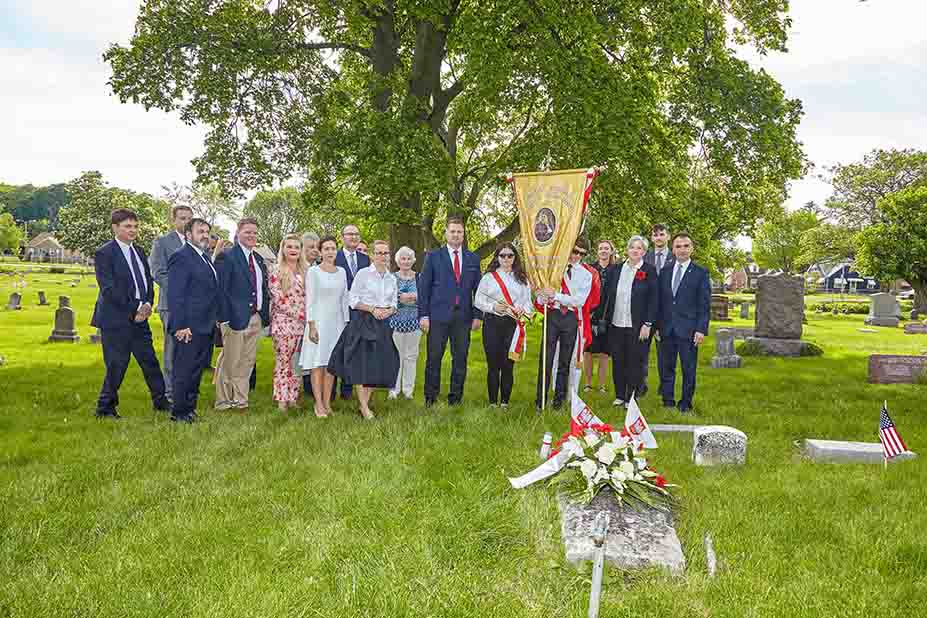
A delegation from Poland at the St. Adalbert Cemetery in Milwaukee, May 30, 2022 (Photo: Marcin Murawski)
From the beginning of the partitions of Poland, the invaders tried to Germanize and Russify the Poles by all means. One of the basic methods was to fight the Polish language. In the Prussian partition, the official language was German, and in the Russian partition — Russian. In schools, students were subject to corporal punishment for using the Polish language during breaks between lessons, and their parents were fined. The only exception was the possibility of speaking Polish in religion lessons. It happened more and more often that students were forced to learn prayers in German. For disobedience, for refusing to say prayers in German, children were beaten and detained after school to do additional, often pointless work. The children were encouraged and their protests were supported by Fr. Jan Laskowski.
The most famous and fateful events took place on May 20, 1901 at the Catholic People's School in Września, when the German teacher Schölzchen imposed corporal punishment on 14 children for refusing to answer in German during religion lessons. The group of children was headed by Bronisława Śmidowicz, but Tekla Tomaszewska was beaten the most severely.
Tekla was born on September 12, 1888 as the sixth of eleven children of Andrzej Tomaszewski, a shoe-maker from Września, and Józefa, née Nowicki. She spent her childhood at her birthplace, in a town with just over five and a half thousand inhabitants, living with her family in a building that still exists at the corner of today's Staszica and Fabryczna streets in Września.
Her sister – Helena – recalled many years later that "Tekla returned home several times with her hands beaten to blood, once she fainted on the stairs of the house". A dozen days earlier, on May 6, 1901, Tekla's father - Andrzej Tomaszewski, together with several other parents, sent a protest to the school headmaster against the detention of their children, every day for two hours, for refusing to respond during religion lessons in German.
At the cry of beaten children, an agitated crowd of parents and townspeople gathered in front of the school. There were demands to punish the teachers. Verbal insults broke out and there were even acts of physical violence. It was not without the intervention of Prussian gendarmes. The protesters were pacified and prosecuted in Gniezno.
In this trial, which took place on November 14–16, 1901, the Prussian state accused the striking children and their parents who were defending them. Despite the involvement of prominent lawyers Zygmunt Dziembowski, Adam Woliński and Bernard Chrzanowski on the side of the defense, a total of 25 people were sentenced. Arrest and fines were ordered. The minimum sentence was 2 months in jail, and the maximum sentence for which Nepomucena Piasecka — a laundress and mother of five children in the strike — was sentenced to 2.5 years in prison.
Even a photographer from Września, Szymon Furmanek, was sentenced to a fine of 200 marks. He was charged with "making and distributing three photographs of people related to the Września case". These photos were snapped up by Poles far beyond the Duchy of Poznań, and were also reproduced by the Polish and foreign press. The court also punished Marceli Piasecki for distributing these photographs, and Kazimierz Kaczmarek for storing them. Tekla Tomaszewska and Bronisława Śmiłowicz were among the students who had their compulsory schooling extended for Easter 1902.
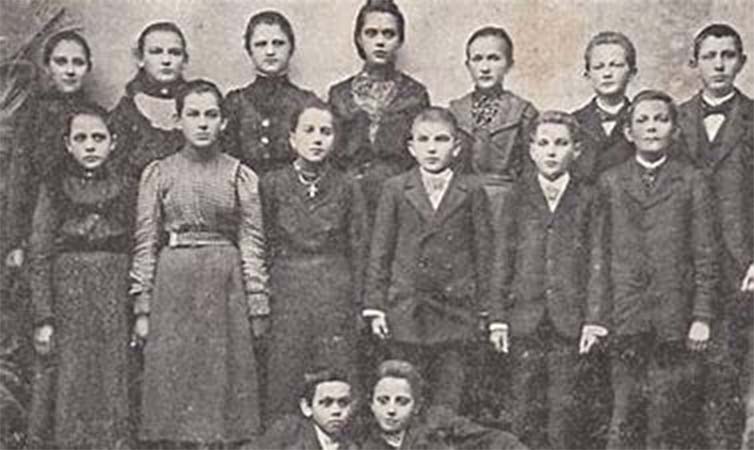
Września children (Source: Facebook)
However, the conviction and brutal persecution of Polish children in Września by the Prussian government had the opposite effect. The strike action has widened. Students from other schools of the Prussian partition followed the example of the Września children. In 1906, the children's resistance, supported by their parents, took the form of a general strike. In the phase of the greatest intensity, approx. 75,000 children in about 800 schools (out of the total number of 1,100 schools) were on strike.
Polish writers and intellectuals also protested against the brutal Germanization of Polish children. Maria Konopnicka wrote an emotional poem, About Września, and later Rota, which played the role of the national anthem with the music of Feliks Nowowiejski. Henryk Sienkiewicz published two letters in the Kraków periodical Time (Czas) — the first in November 1901 and the second in November 1906 — in which he condemned the actions of the Prussian authorities towards the Polish children.
Henryk Sienkiewicz, in 1905, received the Nobel Prize in Literature and was a celebrity in the world, so the letter from 1906 was printed by all Polish newspapers, in all partitions, and many foreign magazines. In 1908, the Irish writer Shane Lesle, who fought for the survival of the language of his island, collected and sent to Poland a list of over 5,000 signatures of Irish children in support of Polish children.
The strikes weakened the restrictions of the Prussian authorities on Polish children. The participants of the strike grew up to be patriots and Polish community activists.
After graduating from school, Tekla learned to make hats. In 1909, she left Września forever and emigrated to the USA. There, she joined her older siblings — Waleria and Franciszek Xawery (1881-1976), who emigrated in 1903. He stayed first in Chicago and then in Milwaukee and Detroit. He was noted as an officer recruiting volunteers for the Blue Army of General Józef Haller, a journalist-publicist, and a Polish community activist. Under his tutelage, in Milwaukee, Tekla began her life in the USA.
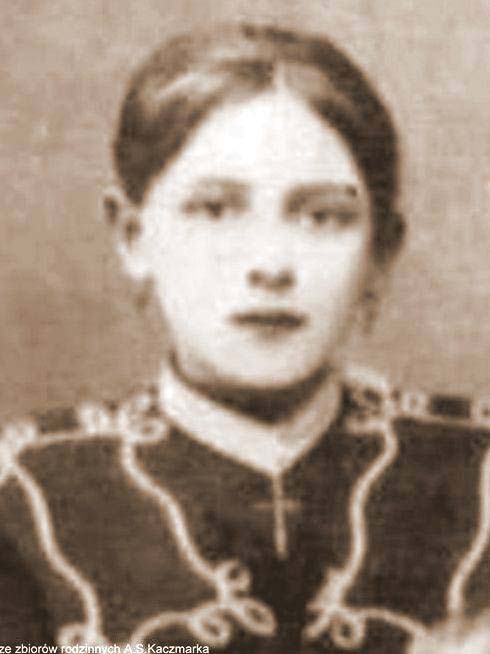
Tekla Tomaszewska-Dembińska (Source: Facebook)
On August 7, 1912, she married Tomasz Dembiński from Włocławek. Together they raised four children.
Tekla's younger brother, Aleksander Tomaszewski (1791-1970), also wrote a beautiful patriotic and family history card. He graduated in medicine, but devoted his life to military service. In 1915, he was drafted into the Prussian army. In 1918 he took part in the Greater Poland Uprising, in 1920 — in the Polish-Bolshevik war, and then in the September campaign of 1939. He was interned in Soviet POW camps. After the amnesty under the Sikorski-Majski pact, he joined General Anders' army. After WWII, he emigrated to Great Britain. He graduated from the service with the rank of major, and was awarded many decorations, including the Silver Cross of the Order of Virtuti Militari (1922), the Silver Cross of Merit with Swords, and the British Medal for the 1939-1945 War.
Tekla Dembińska, née Tomaszewska, died in Racine, Wisconsin on January 16, 1978 and was buried on January 19, 1978 at Saint Adalbert Cemetery in Milwaukee. Her grave was included in the list of the Institute of National Remembrance (IPN, Instytut Pamięci Narodowej) as a place of national remembrance.
Translation from Polish by Andrew Woźniewicz.



